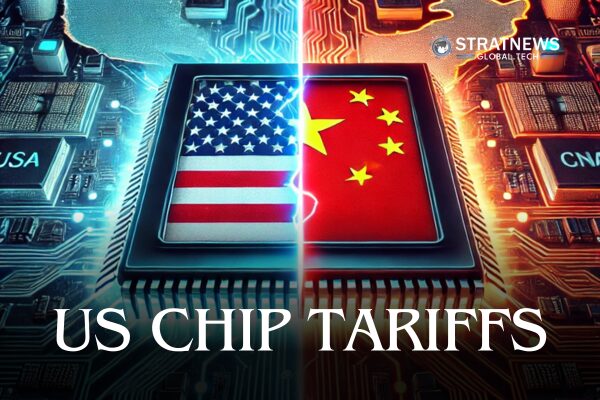Trump Tariffs on Semiconductor Imports
President Donald Trump announced plans to impose tariffs on semiconductor imports from companies that do not relocate production to the United States. He made the remarks ahead of a private dinner with major technology industry leaders on Thursday.
Since returning to office in January, Trump’s tariff policies have unsettled global markets, strained trade partnerships, and added uncertainty to the global economy.
Speaking to reporters, Trump stated, “We will be putting tariffs on companies that aren’t coming in. A fairly substantial tariff will be applied very shortly.” He did not specify the exact timing or tariff rate.
Tariff Strategy Forms Core of Trump’s Trade Agenda
Trump clarified that companies building or planning production facilities within the US would be exempt. “If they are coming in, building, planning to come in, there will not be a tariff,” he explained. “If they are not coming in, there is a tariff.”
The former president has long used tariffs as a cornerstone of his trade and foreign policy. His approach is designed to pressure countries and corporations into making economic concessions and revising trade terms in favour of the US.
During his remarks, Trump pointed out Apple CEO Tim Cook, who was seated across the table. “I would say Tim Cook would be in pretty good shape,” he added. Apple recently raised its domestic investment commitment to $600 billion over the next four years, signalling alignment with Trump’s policy direction.
US Tariff Plans May Reshape Global Chip Supply Chains
Last month, Trump mentioned that the US would impose a 100% tariff on imported semiconductors. However, he made it clear that companies manufacturing domestically or committed to doing so would not be affected.
Several major players in the semiconductor industry have already begun investing in US-based manufacturing. These include Taiwan’s TSMC, South Korea’s Samsung Electronics, and SK Hynix.
Despite these moves, Trump’s tariff strategy has faced legal obstacles. A lower court recently struck down many of the levies central to his trade approach. In response, his administration has asked the US Supreme Court to urgently hear an appeal to uphold the tariffs, which were issued under a 1977 law intended for national emergencies.
with inputs from Reuters


